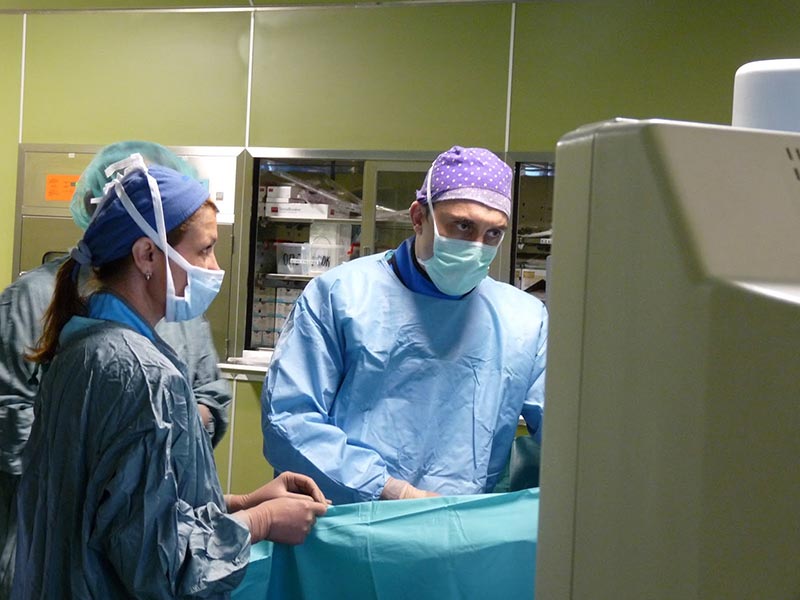In the conventional approach, this operation requires a longitudinal incision through the entire abdomen
A rare cyst operated bloodlessly in Tokuda
A 20-centimeter cyst was removed by Tokuda urologists using a bloodless method. The mass of huge size was located on the urachus (residual organ above the bladder). Such cysts are rare, and the size of this one is a real challenge for surgeons. The 65-year-old patient is recovering very quickly and is due to be discharged tomorrow.
The insidious disease was discovered during an endoscopic procedure on suspicion of a bladder tumor. Immediately, a scan was ordered, which proved that it was a rare urachus cyst, and one of enormous size and altered structure.
The cutting-edge surgery was performed laparoscopically through four small holes in the abdomen, with urologists excising and removing the cyst with extreme care. "Endourology, to which this intervention belongs, offers extremely gentle and effective methods, with the least possible subsequent pain and almost no blood loss," summarizes Dr. Kaloyan Davidov, head of the surgical team and head of Urology at Tokuda Hospital Sofia.
During the 70-minute surgery, the cyst was completely removed with minimal trauma and blood loss. "If the operation had not been performed by laparoscopic methods - it would have been necessary to open the abdominal cavity, and at this size of the cyst the incision would have been longitudinal through the entire abdominal area," emphasizes Dr. Davidov.
Dr. Davidov's team successfully performed a similar operation a few months ago. Then the laparoscopic method was applied to remove a urachus cyst of a 4-year-old child. A 2-centimeter growth was removed and at the same time the child was operated on for cryptorchidism (hidden/retained testicle) and phimosis (inability to retract the penile skin).
A urachus cyst is a formation at the site of the fibrous remnants of the urachus, an organ that develops during intrauterine life and becomes a fibrous cord after birth. When inflamed, this cyst can cause symptoms such as abdominal pain, blood in the urine, high fever, discharge from the umbilicus, rupture, peritonitis. With time, it can turn into a malignant growth.








